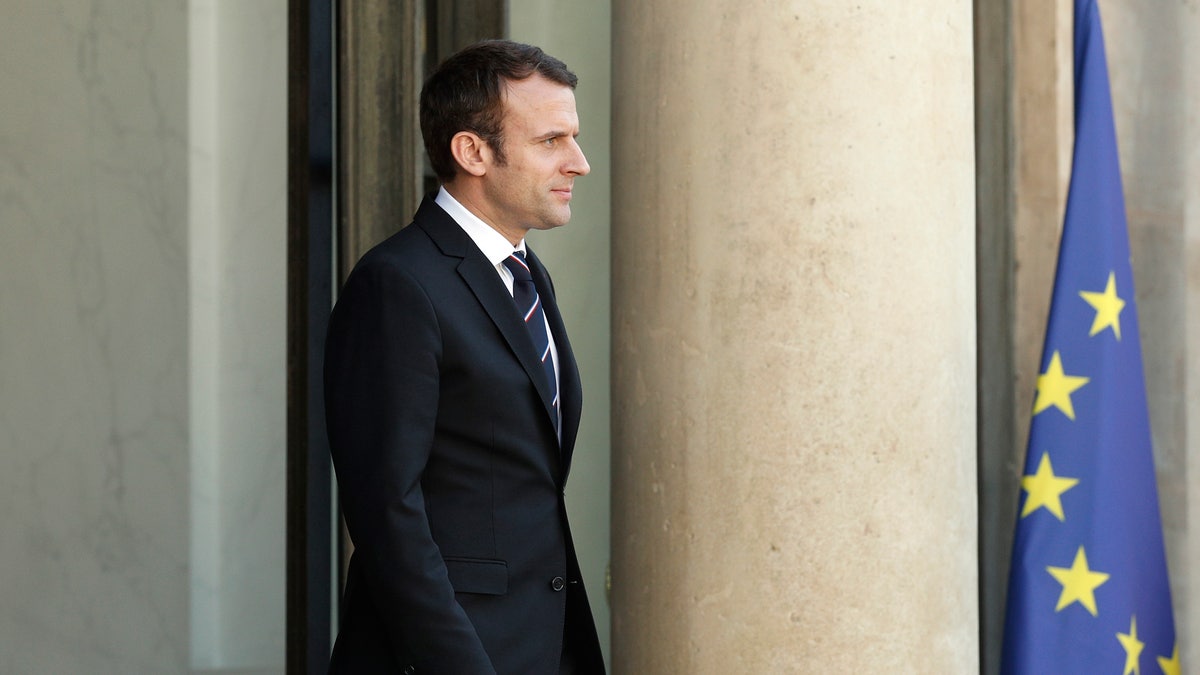
PARIS – French President Emmanuel Macron named a mix of prominent and unknown figures from the left and the right Wednesday to make up the government tasked with pushing through his plans to reduce labor protections, tighten European unity and boost military spending.
The most senior Cabinet job — the post of interior minister — went to Gerard Collomb, 69, the long-time Socialist mayor of Lyon who played a key role in Macron's presidential bid. Collomb said his duty will be to protect the French people, to fight terrorism and to prevent youth from falling "in the grip" of the Islamic State group.
A few hours after taking office, Collomb made an unexpected visit to Paris' grand Champs-Elysees avenue, where a police officer was shot to death by an Islamic extremist last month.
Jean-Yves Le Drian, 69, who led France's military operations abroad as former President Francois Hollande's defense minister, will stay on in Macron's government as foreign minister and also be in charge of European affairs. Le Drian, another Socialist, brings deep experience that could prove valuable to the untested 39-year-old president.
Le Drian vowed to promote the country's "key role" in the international community, noting continuity between his previous position and his new diplomatic job.
The armed forces will now be led by Sylvie Goulard, the most senior woman in the government. Goulard, 52, is a European Parliament member and strongly pro-European centrist politician who will be expected to champion Macron's push for joint European military operations.
In an important gesture to the right-wing Republicans party ahead of parliamentary elections next month, the crucial Economy Ministry will be run by prominent conservative Bruno Le Maire, 48.
The Cabinet includes 18 ministers and 4 junior ministers, half of them women and half men. Center-right Prime Minister Edouard Philippe, whom Macron tapped named Monday, is to lead the government at least until the elections.
Members of civil society without government work on their resumes were appointed to some ministerial posts. Nicolas Hulot, the well-known host of a television show focusing on nature and the environment, was named minister for environment transition. His portfolio includes energy and transportation.
Muriel Penicaud, the new labor minister, previously worked for food corporation Danone and French telecommunications group Orange. Since January 2015, she led Business France, a public agency in charge of promoting French companies abroad and attracting foreign investments.
Penicaud will have the daunting task of supervising the reform of labor protections, a part of Macron's agenda that already has prompted outcries from unions.
Culture minister Francoise Nyssen is CEO of French publishing house Actes Sud. Macron is known as a passionate literature lover.
The youngest person selected to work in Macron's government was Mounir Mahjoubi, 33, who was named junior minister for digital economy. As Macron's campaign digital chief, Mahjoubi was responsible for cybersecurity.
The announcement initially planned for Tuesday was pushed back a day while authorities dug more deeply into candidates' tax records and financial assets for signs of potential conflicts of interest.
Macron has pledged to fight corruption after tax evasion and other scandals hit the previous government.
The new government may only serve for a few weeks. If Macron's party doesn't win a majority in the June 11 and 18 parliamentary elections, he might have to form a coalition and adjust the makeup of the government. He also could end up with a government led by an opposition party.
Macron hosted European Council President Donald Tusk at the Elysee Palace for a private dinner on Wednesday night, a sign of his determination to shore up European unity. Before their meeting, Macron said he wants a Europe that is both more conducive to investment and more protective of workers.
Macron wants European militaries to join efforts and for eurozone countries to share a budget and tax rules. He has also promised a tough line on Britain as it negotiates its departure from the EU, to deter others from trying to leave
Speaking with Tusk by his side, Macron said he's advocating "a less bureaucratic and a more political Europe" and relying on Tusk to "go even further in this work of re-shaping and setting in motion again a European ambition."
Tusk approved the goals proposed by Macron and said "words such as security, protection, dignity and pride must return to our political dictionary."
___
Philippe Sotto contributed to this report.
